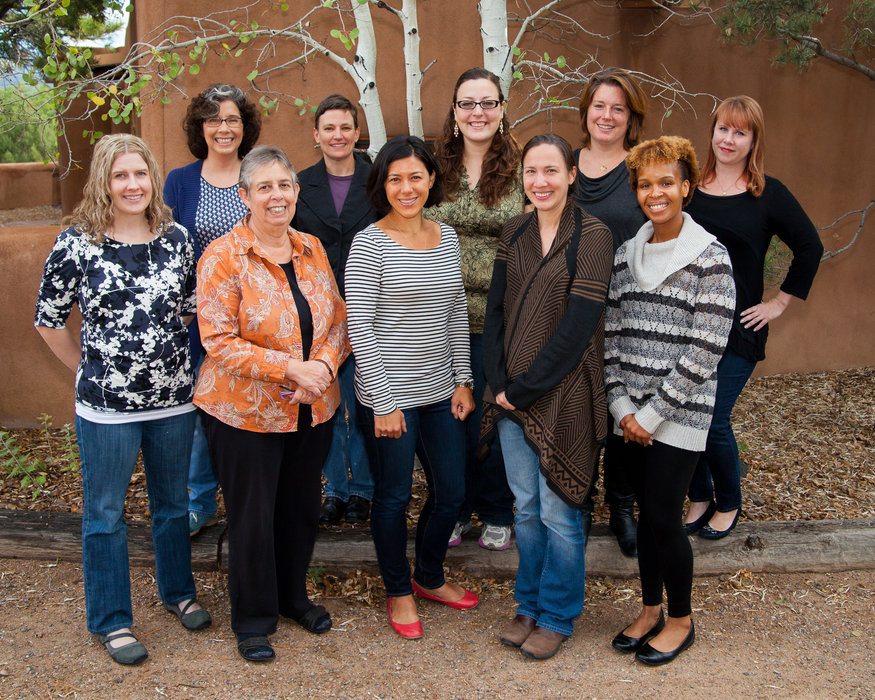
Transformations in Social Citizenship: Stratification, Risk, and Responsibility in Health Care Reform
Co-chaired by Heide Castañeda, Associate Professor, Department of Anthropology, University of South Florida and Jessica Mulligan, Assistant Professor, Department of Health Policy and Management, Providence College Photo by Garret P. Vreeland.
October 6–8, 2015
Transformations in Social Citizenship: Stratification, Risk and Responsibility in Health Care Reform
The health reform debate in the United States has been framed by intense partisan polemic. Academic inquiry into the impact of the Affordable Care Act (ACA) has primarily taken the form of quantitative and survey research from the disciplines of sociology, economics, and public health. By convening a network of medical anthropologists and allied social scientists who are actively researching the Affordable Care Act, the goal of the seminar was, “to assemble a more holistic, comparative portrait of the law that is richer than what any one researcher could produce in isolation and is attuned to the complex experiences of implementation that are often lost in quantitative and survey research,” Heide Castañeda and Jessica Mulligan reported. Seminarians explored three theoretical concerns:
- How does reform relate to projects of stratified citizenship? Who gains access and who is excluded?
- What are the notions of risk, responsibility, and security? How do neoliberal assumptions about choice, value, and the individual underwrite reform?
- What are the larger politics of market-based care? How are new “consumers” responding to choices in the “marketplace”? How do we theorize the politics of health reform in the contemporary environment?
“Answering calls to forge a more publicly-relevant research practice (Horton et al. 2014),” wrote Castañeda and Mulligan, “this short seminar brought together ethnographic engagements with ‘Obamacare’ and explored three interrelated themes that reflect upon central theoretical concerns in medical anthropology: stratified citizenship, risk and responsibility, and the politics of healthcare marketplaces.” Participants planned to submit an edited volume of their work to New York University Press, and also, to continue the goal to make the work of anthropologists more relevant by drafting three policy articles. The subjects of which were: the need to close the Medicaid gap, the importance of simplifying enrollment processes, and how policymakers and providers can collaborate to create the best possible health care delivery landscape.
Heide Castañeda, Chair
Associate Professor, Department of Anthropology, University of South Florida
Jessica Mulligan, Chair
Associate Professor, Department of Health Policy and Management, Providence College
Elise L. Andaya
Associate Professor, Department of Anthropology, University at Albany (SUNY)
Emily K. Brunson
Assistant Professor, Department of Anthropology, Texas State University
Tiffany D. Joseph
Assistant Professor, Department of Sociology, Stony Brook University
Milena A. Melo
Doctoral Candidate, Department of Anthropology, University of Texas at San Antonio
Mary Alice Scott
Assistant Professor, Department of Anthropology, New Mexico State University
Susan Sered
Professor, Department of Sociology, Suffolk University
Susan J. Shaw
Associate Professor, School of Anthropology, The University of Arizona
Cathleen E. Willging
Senior Research Scientist II, Pacific Institute for Research and Evaluation, Behavioral Health Research Center of the SW